Latest DePIN Funding News

9 months ago
FXGuys: A Rising Star in the DeFi Landscape
The cryptocurrency market is witnessing a surge in innovation, with FXGuys emerging as a notable contender among high-potential altcoins and DeFi projects. Unlike established players like Filecoin and Hedera, FXGuys combines staking opportunities with a unique prop trading funding program. This innovative approach not only attracts investors but also creates a robust ecosystem for traders, making it a promising alternative in the rapidly evolving crypto landscape.
FXGuys stands out with its unparalleled staking rewards, allowing users to stake $FXG tokens and earn a 20% profit and revenue share from broker trading volumes. This feature positions FXGuys as one of the best DeFi tokens, offering passive income opportunities for its holders. Additionally, the revolutionary Trade2Earn program incentivizes traders by rewarding them with $FXG tokens for every trade executed, fostering increased trading activity and volume. With over $3.9 million raised in its Stage 3 presale, the $FXG token is currently priced at $0.05, reflecting strong investor interest and potential for growth.
What sets FXGuys apart from its competitors is its commitment to accessibility and convenience for traders. The platform supports multiple trading platforms, including MT5 and cTrader, and offers same-day deposits and withdrawals in over 100 local currencies. Furthermore, FXGuys eliminates barriers such as buy/sell taxes on $FXG and KYC requirements for decentralized trading, making it an attractive option for both seasoned traders and newcomers. As FXGuys continues to gain traction, its unique offerings position it as a leading player in the DeFi space, poised for significant growth in the coming months.
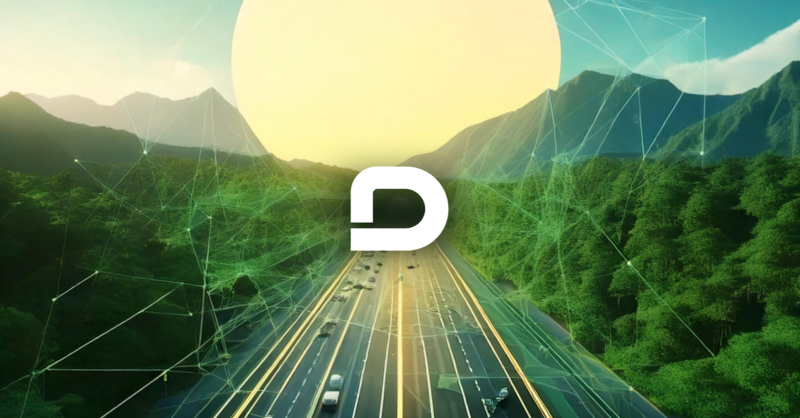
9 months ago
DIMO Introduces Oracles: A Major Upgrade for Data Integration
DIMO is undergoing a significant upgrade with the introduction of Oracles, which are currently being tested by initial developers. This upgrade is pivotal for decentralizing the DIMO protocol, allowing third-party data sources, such as vehicle manufacturers or developers, to contribute their data. Once activated by end users, this data flows into a secure vault, making it accessible to developers via DIMO APIs. This advancement not only enhances the amount of data available for application development but also increases the potential for creating valuable new services and applications on the DIMO platform.
An Oracle serves as a conduit for data to enter the DIMO network, which can include hardware devices or API integrations with companies like Tesla and SmartCar. Currently, there are six existing Oracles, including integrations with Tesla and SmartCar, as well as three hardware devices. It is essential for users to activate these data streams, similar to connecting a DIMO hardware device or a Tesla through the DIMO mobile app. This activation allows users to share their data with various applications, thereby enriching the DIMO ecosystem and providing developers with more data to work with.
The introduction of Oracles marks a significant step in expanding DIMO beyond telematics data. Developers can now integrate various data types, such as electric vehicle charger data or video feeds, into the DIMO ecosystem. This expansion is crucial for the growth of DIMO, as it will enable innovative applications and advanced AI model training. Furthermore, the DIMO Foundation is exploring future tokenomics proposals to incentivize developers for creating and maintaining these data connections, thereby enhancing the overall value of the DIMO platform for its users and developers alike.

9 months ago
Bitcoin Surges Above $97k as Remittix Presale Hits $11 Million
In a notable weekend rally, Bitcoin has surged nearly 1%, trading above $97,000, marking a significant shift in the cryptocurrency market. This uptick comes after a period of volatility, with Bitcoin's price currently standing at $97,262. Investors are expressing optimism about Bitcoin's potential for further growth in the medium to long term, which may also bolster confidence in altcoins that are developing infrastructure for users. As the market continues to evolve, the performance of Bitcoin could influence the broader cryptocurrency landscape.
One project making waves in this environment is Remittix, a PayFi initiative designed to simplify cryptocurrency payments. Remittix aims to merge traditional payment systems with decentralized finance, allowing users to send fiat to any bank account globally using crypto. The platform promises no hidden fees or expensive conversion rates, ensuring that recipients are unaware that the original payment was made in cryptocurrency. This innovative approach could attract both novice and experienced users, making it easier for them to navigate the crypto space.
The Remittix presale has gained significant traction, raising over $11 million in just two weeks, with nearly 450 million of the 750 million available $RTX tokens sold. The presale's target is set at $36 million, and the liquidity pool along with team tokens will be locked for three years, enhancing investor confidence. With a successful smart contract audit completed, Remittix is poised for a promising launch on centralized exchanges and Uniswap. As the presale progresses, investors have a unique opportunity to acquire $RTX tokens at a discounted price before they hit the market, potentially positioning themselves advantageously in the evolving crypto payment landscape.

9 months ago
GEODNET Achieves Unprecedented Growth in Satellite Mining and Token Value
In 2024, the Solana-based Global Earth Observation Decentralized Network, GEODNET, has experienced remarkable growth, with a staggering 219% increase in active RTK (Real-Time Kinetics) satellite miners. This surge has positioned GEODNET as the leading player in the satellite mining industry, surpassing established centralized competitors like Trimble. By the end of the year, GEODNET has amassed over 12,000 active RTK satellite miners, reflecting a growing demand for decentralized Earth observation and real-time satellite data, which is becoming increasingly critical in various sectors.
A significant highlight for GEODNET in 2024 was the impressive rise in the value and market capitalization of its native token, GEOD. By year-end, the token reached a circulating market capitalization of $62 million, marking a 59% increase quarter-over-quarter and an astounding 524% year-over-year. Notably, a major token unlock on December 28, 2024, involving 32.46 million GEOD tokens, did not negatively impact the token's price; instead, it rallied post-unlock, showcasing the market's confidence in GEODNET's potential. This positive momentum positions GEOD as a serious contender in the decentralized geospatial data arena.
GEODNET's strategic initiatives in 2024 included securing $2 million in funding from prominent investors like Animoca Brands and ParaFi, which will be used to diversify revenue streams and enhance technology adoption. The launch of the GEO-PULSE GPS receiver, priced at $149, further exemplifies GEODNET's commitment to delivering precise navigation solutions. Additionally, partnerships with industry leaders such as Septentrio and Bad Elf were announced at CES 2025, aimed at expanding the adoption of GEODNET's RTK network across various sectors, including autonomous vehicles and precision agriculture. With these advancements, GEODNET is poised for a bright future in the decentralized Earth observation landscape.

9 months ago
Arkreen: Pioneering a Decentralized Energy Future
The energy sector is currently experiencing a significant transformation, shifting from traditional fossil fuel power plants to Distributed Energy Resources (DERs) primarily powered by renewable energy. This transition is accompanied by a growing demand for electricity driven by AI and digital applications, which is becoming increasingly decentralized. The challenge lies in efficiently matching these fragmented supply and demand sources globally, paving the way for a peer-to-peer (P2P) energy asset trading marketplace. Arkreen is at the forefront of this movement, leveraging the Decentralized Physical Infrastructure Network (DePIN) model to facilitate community collaboration and unlock the potential of distributed renewable energy assets.
Arkreen aims to build a trustworthy, digitized global energy asset network using blockchain technology. This infrastructure allows for efficient coordination and transparent management of energy resources worldwide. By connecting distributed residential renewable energy assets, such as solar PV systems and energy storage, Arkreen enables the monetization of these assets on a global scale. The platform's open framework integrates long-tail residential energy assets with on-chain economies, including Renewable Energy Certificates (REC) and Virtual Power Plants (VPP), ensuring a secure and flexible solution for energy asset monetization.
Recently, Arkreen completed its Token Generation Event (TGE), establishing a token-driven economic model that encourages participation from both supply and demand sides. The project has already connected over 200,000 distributed solar energy data nodes and issued 120 million kWh of tokenized RECs. Looking ahead, Arkreen plans to expand its network to connect 1 million DERs globally, develop a Web3 carbon neutrality standard, and create the largest on-chain renewable energy certificate retail market. By fostering a decentralized energy network, Arkreen envisions a future where energy is accessible and beneficial for all, empowering communities to collaborate towards sustainable energy solutions.
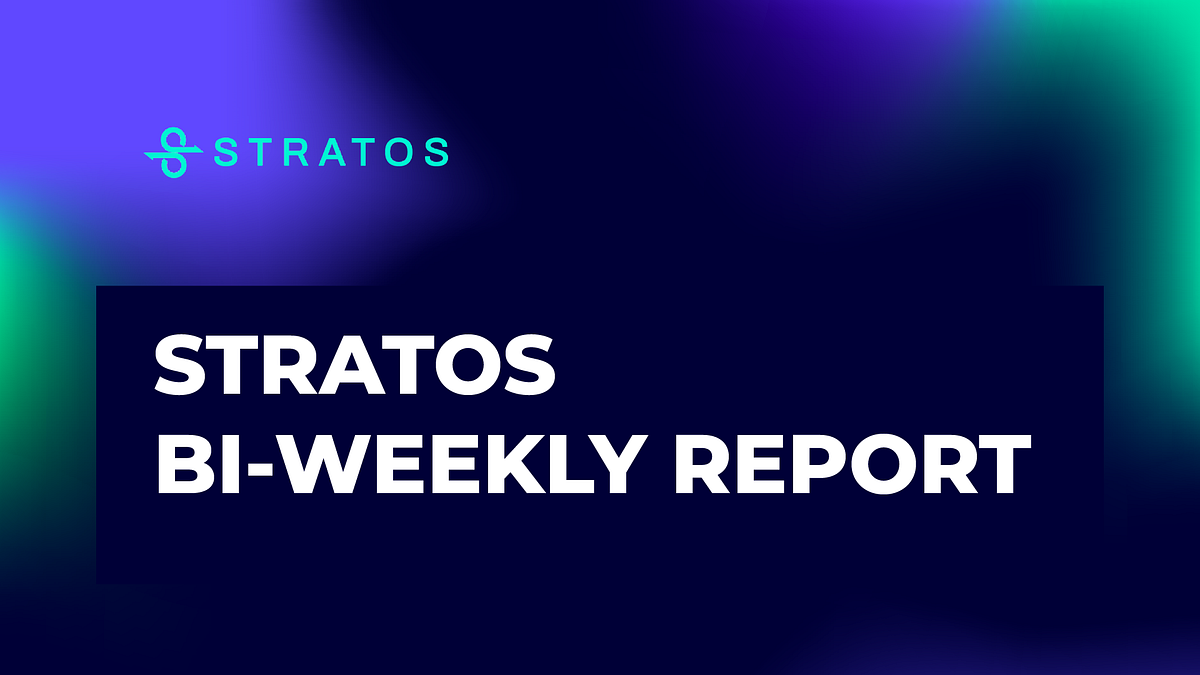
9 months ago
Stratos Network Launches Metanode Upgrade and Prepares for Major Expansion
In a significant development for the Stratos network, the team has successfully completed the Metanode Migration on the Mesos Testnet and launched the new Metanode Network on the mainnet. This upgrade has resulted in a remarkable enhancement in network performance, allowing for faster data retrieval and improved data transfer capabilities. Notably, the Metanode Network is now able to handle the same volume of traffic as before the migration while utilizing only about 10% of the previous hardware resources. This advancement not only strengthens Stratos’ decentralized infrastructure but also enhances its efficiency and scalability, paving the way for continued network growth.
Following the deployment of the Metanode update, the Stratos network faced attempts from some users to exploit strategies that were effective prior to the upgrade. These attempts involved uploading and downloading large volumes of files to skew rewards in favor of their storage provider (SP) node. However, the enhanced Stratos network managed to handle the increased traffic seamlessly, demonstrating its resilience and readiness for high-traffic usage. This stress test has confirmed that Stratos is well-prepared for its upcoming release of Stratos Drive and the Stratos Interplanetary File System (SPFS), which is expected to host the largest IPFS cluster upon its launch.
In addition to these technical advancements, Stratos has formed strategic partnerships with VeWare.io and EdgeX to bolster its ecosystem. The collaboration with VeWare.io aims to transform crypto insights and data integrity, while the partnership with EdgeX will integrate Stratos’ decentralized storage into its intelligent edge network, enhancing services for Web 3.0 projects and decentralized applications (dApps). Furthermore, Stratos has joined forces with SOLO to revolutionize token distribution through mining-based models, ensuring scalable, private, and fair dApps and AI agents. With the final round of testing for Stratos Drive underway, the community is eagerly anticipating the launch of this game-changing decentralized storage solution, which promises to empower users to take control of their data in the evolving digital landscape.
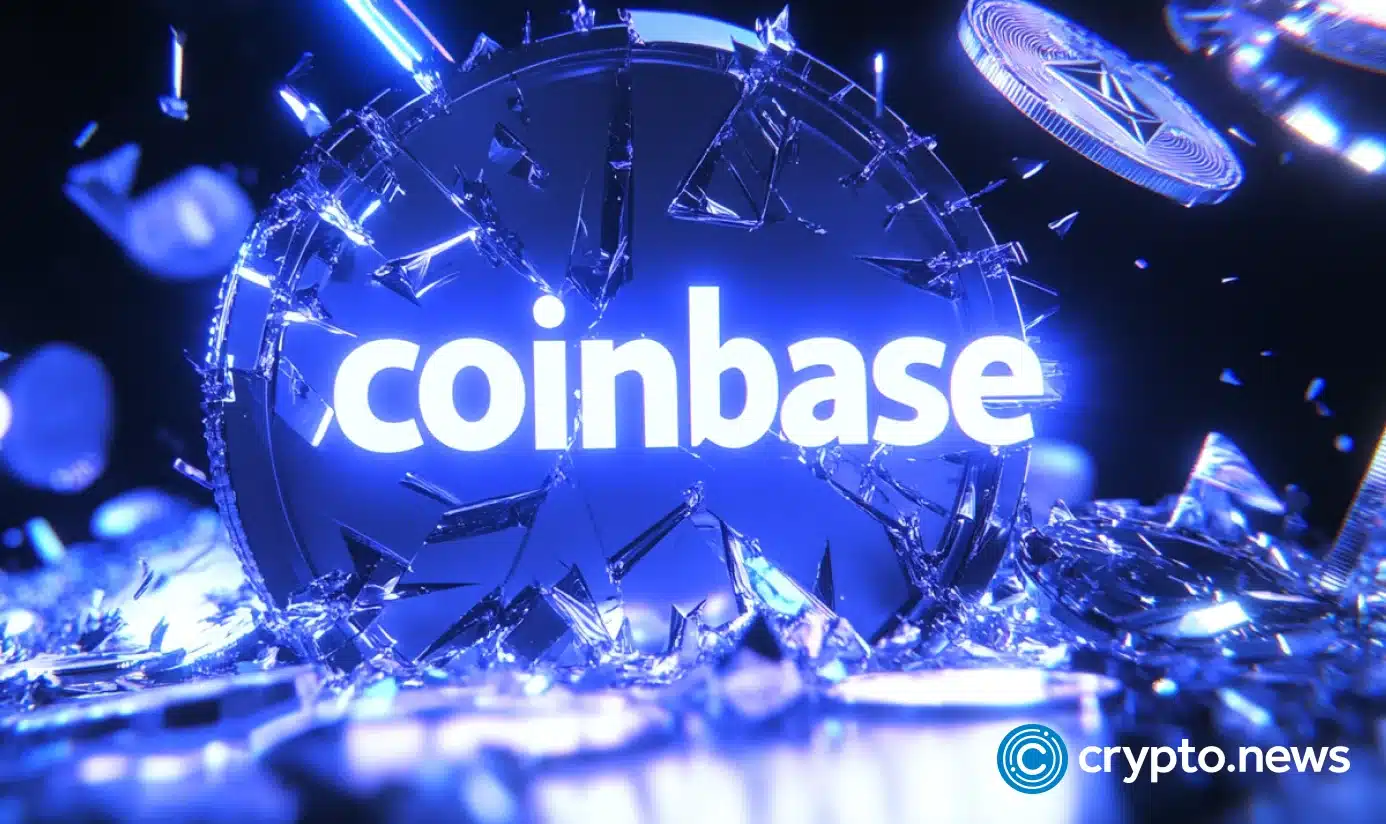
9 months ago
Coinbase Expands Perpetual Futures Trading with New Token Listings
Coinbase, the leading cryptocurrency exchange in the United States, has recently announced the addition of trading support for perpetual futures on three tokens: Pudgy Penguins, Popcat, and Helium. This announcement was made on February 6, with trading for these perpetual futures set to commence on or after 9:30 a.m. UTC on February 13, 2025. The new trading options will be available on both the Coinbase International Exchange and Coinbase Advanced platforms, catering to non-U.S. institutions and eligible retail users in select jurisdictions.
The introduction of perpetual futures for PENGU, HNT, and POPCAT is part of Coinbase's broader strategy to expand its offerings. On the same day, Coinbase also launched perpetual futures for Berachain (BERA), marking a significant addition to its trading portfolio. The BERA-PERP market went live at 17:00 UTC, coinciding with the recent mainnet launch and token generation event for Berachain. The price of BERA experienced a notable surge following its introduction, with listings on major exchanges like Binance and Coinbase being pivotal for its market performance.
In addition to the newly listed tokens, Coinbase has previously launched perpetual futures for other cryptocurrencies, including Tezos, Axie Infinity, and MultiversX. The AXS-PERP, XTZ-PERP, and EGLD-PERP markets are now operational, offering various order types such as limit, market, stop, and stop-limit orders. This expansion reflects Coinbase's commitment to enhancing its trading ecosystem and providing users with diverse investment opportunities in the rapidly evolving cryptocurrency landscape.
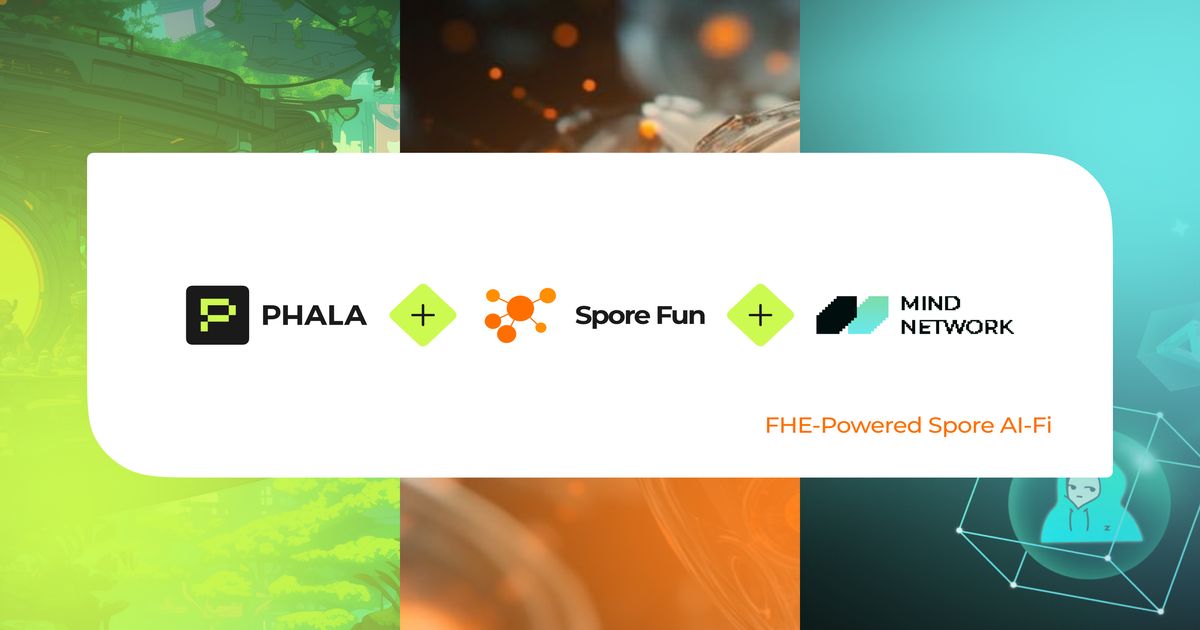
9 months ago
Spore.fun Introduces FHE-Powered Blind Voting to Combat Voting Snipers in AI-FI Governance
Spore.fun is leading the charge in AI-FI (Autonomous AI-Native DeFi) innovation by introducing Fully Homomorphic Encryption (FHE) to enhance secure governance. In collaboration with Mind Network, a pioneer in FHE technology, and integrating with Phala Network’s Trusted Execution Environment (TEE), Spore.fun aims to redefine how AI agents manage decentralized systems. The primary challenge they face is the issue of voting snipers, who exploit the transparency of on-chain governance to manipulate outcomes. These participants stake just before votes, influence community behavior, and then unstake immediately after securing favorable results, leading to market distortions and undermining trust within the community.
To address the problem of voting snipers, Spore.fun is implementing FHE-powered blind voting. This innovative mechanism conceals voter identities and preferences while maintaining transparency and security in the final results. Votes are encrypted before submission, ensuring that no one, including the Spore.fun network or validators, can access the content of the votes. The aggregation of these encrypted votes is performed using FHE, allowing for computations without revealing individual inputs. Additionally, Phala’s TEE plays a crucial role in securely decrypting the final results for publication, ensuring that while individual votes remain private, the aggregate outcome is verifiable and trustworthy.
The integration of FHE into Spore’s governance model unlocks significant community value by enhancing fairness, ensuring privacy while maintaining transparency, and enabling decentralized evolution. This dual-layer security approach, combining FHE and TEE, empowers Spore agents to operate autonomously and securely, driving the next wave of decentralized AI governance. By adopting FHE blind voting, Spore.fun is not only empowering the community with secure, trustless voting but also establishing a framework for fair, privacy-first AI ecosystems. As they continue to innovate, Spore.fun is shaping the future of decentralized AI, ensuring that AI agents can grow and thrive in a secure environment.
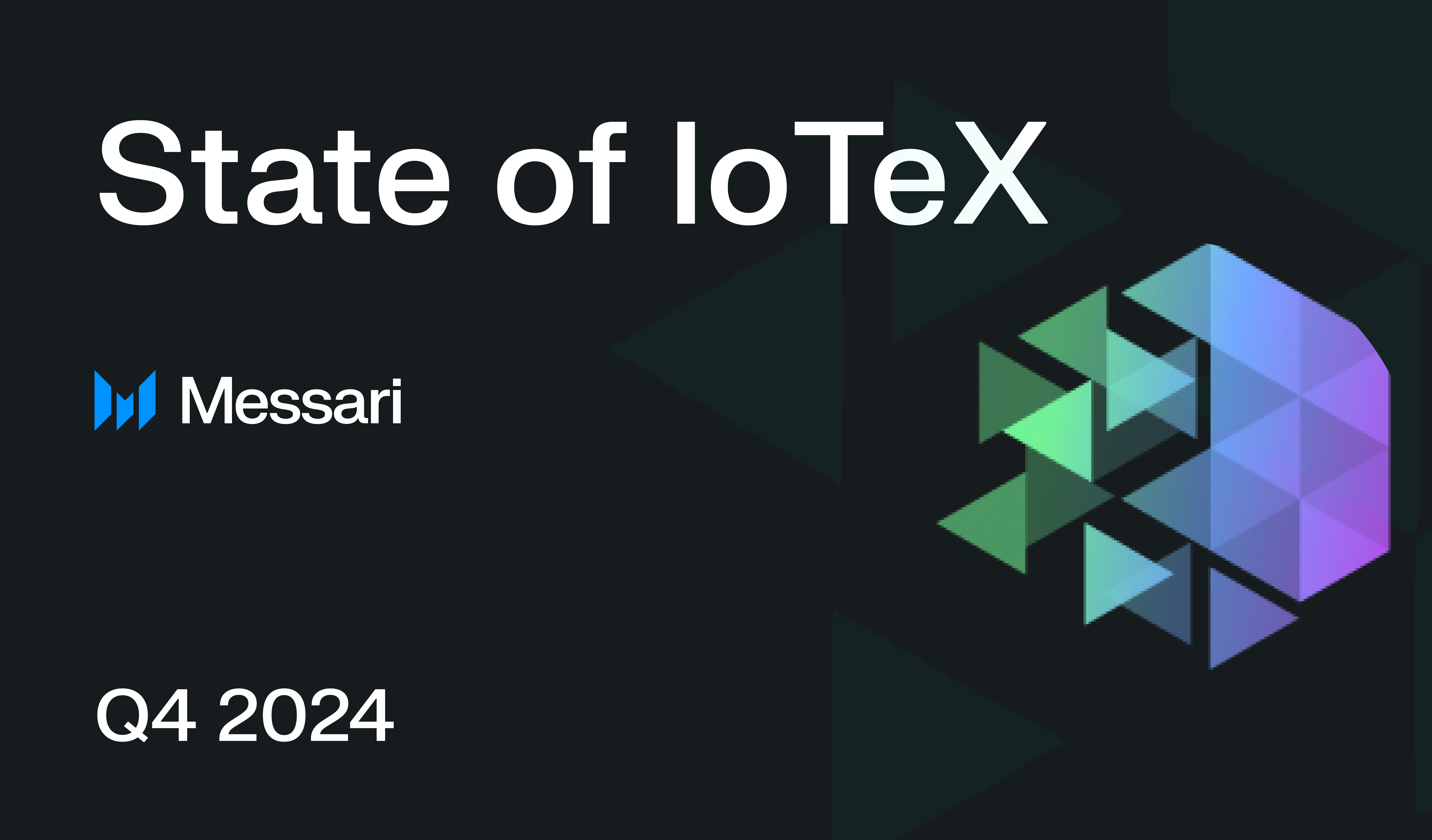
9 months ago
IoTeX 2.0 Launch Drives Record Growth and AI Integration
In the fourth quarter of 2024, IoTeX experienced remarkable growth following the launch of its 2.0 version, with average daily transactions skyrocketing by 1,267% quarter-over-quarter (QoQ) to reach 384,300. This surge was complemented by peak throughput hitting 62 transactions per second (tps). The total fees accrued on the IoTeX Network also saw a significant increase of 205% QoQ, amounting to $448,500, driven largely by a staggering 1,600% rise in gas fees and a 690% increase in decentralized exchange (DEX) fees, primarily from activity on Mimo. The introduction of the ioID protocol, which provides a universal onchain identity solution for smart devices, has played a crucial role in this growth by enabling verifiable device identities and enhancing user engagement in the decentralized physical infrastructure networks (DePIN) ecosystem.
IoTeX has also made strides in integrating artificial intelligence (AI) into its platform with the launch of BinoAI, an autonomous agent built on the ELIZA framework. This development is part of a strategic partnership with Eliza Labs, aimed at creating AI agents that can perceive and interact with physical environments using DePIN data. Additionally, the release of Quicksilver, a middle-layer framework, facilitates the connection between DePIN data and AI agents, allowing for real-time data processing and adaptive responses. These innovations position IoTeX as a leader in the convergence of AI and DePIN, potentially transforming how decentralized applications interact with real-world data.
The IoTeX ecosystem has expanded significantly, now hosting 251 projects, including 66 focused on DePIN. Partnerships with various entities, such as Nubila for environmental data and Streamr for decentralized data streaming, have further enriched the ecosystem. The recent upgrades to IoTeX Core, particularly the Cancun EVM compatibility, enhance the network's functionality and interoperability with Ethereum. As IoTeX continues to innovate and expand its offerings, it is poised to play a pivotal role in the future of decentralized infrastructure and AI-driven applications.
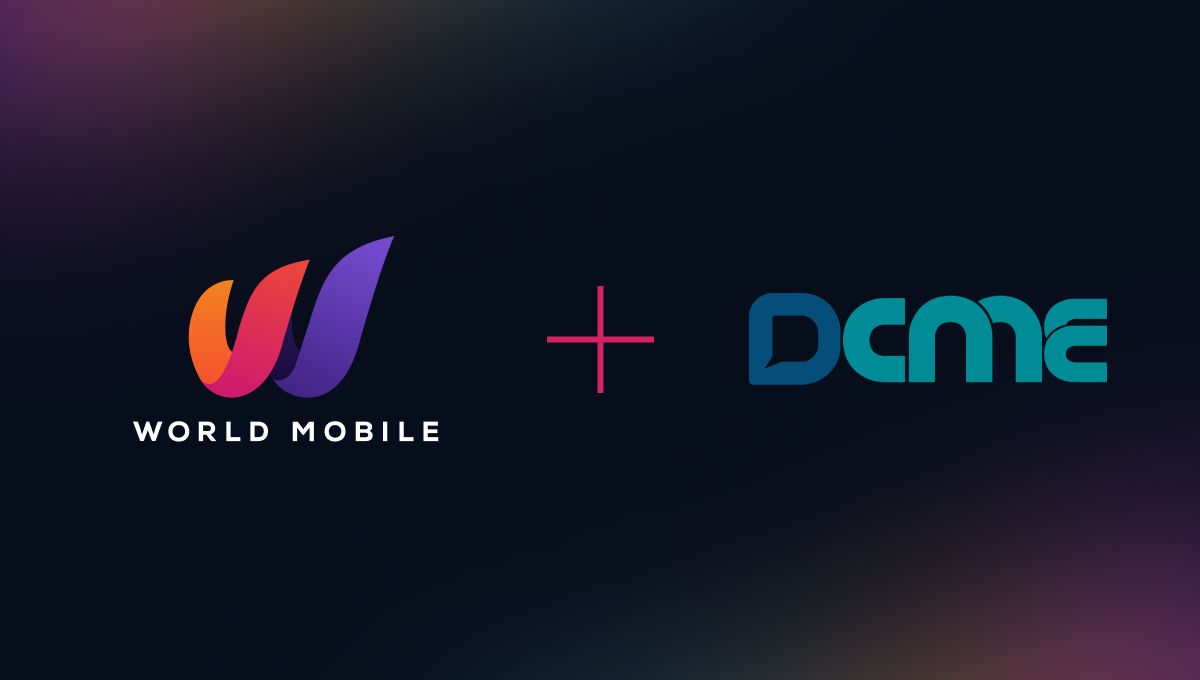
9 months ago
World Mobile Partners with DITO CME to Enhance Connectivity and Financial Inclusion in the Philippines
On February 5th, 2025, World Mobile announced a groundbreaking partnership with DITO CME, the holding company of Dito Telecom, aimed at enhancing mobile and broadband connectivity in the Philippines. This collaboration seeks to address the connectivity gap faced by approximately 25 million Filipinos living in underserved rural areas. By leveraging World Mobile's decentralized physical infrastructure network (DePIN) and blockchain technology, the partnership intends to deliver high-speed, affordable internet access through innovative solutions like World Mobile AirNodes, some of which utilize Starlink's Low Earth Orbit satellite technology.
Central to this initiative is the launch of DTaka, a blockchain-enabled e-wallet platform designed to integrate seamlessly within the DITO CME ecosystem. DTaka will feature a dual-token system that includes a stable-token for remittances and mobile transactions, as well as a utility token for gamification and loyalty rewards. This platform aims to provide a secure and efficient alternative to traditional financial services, fostering financial inclusion and empowering users across the Philippines. Emmanuel Samson, CEO of DTaka, emphasized the platform's potential to revolutionize the e-wallet space by combining World Mobile's blockchain expertise with DITO CME's market reach.
The partnership is a significant step towards promoting Decentralized Physical Infrastructure Networks (DePIN), which encourage shared ownership and operation of essential services. As 2025 unfolds, the initial rollout in the Philippines will pave the way for further expansions, connecting more underserved communities and driving blockchain adoption throughout the region. This collaboration not only highlights the commitment of both companies to innovation and inclusivity but also sets a precedent for future telecommunications advancements in emerging markets.
Signup for latest DePIN news and updates